
The understated reception at Steelworks Studios with platinum discs galore
Aaron Slater recently attended Eliot Kennedy’s Songwriting Camp at Sheffield’s Steelworks Studios. What did he learn from the award-winning songwriter?
 t’s an early start for Songwriting’s publisher on this spring Monday morning, leaving to make the drive to Sheffield from Bristol. But there’s a spring in my step and a child-like excitement that comes from the prospect of visiting one of the UK’s most iconic recording facilities, and to spend time learning from a pop music master craftsman like Eliot Kennedy. Sheffield’s Steelworks was born from the influential FON studios in the mid 90s, and has gone on to open its doors to a diverse range of legendary artists from Bryan Adams to the Spice Girls, S Club 7 to Jarvis Cocker. And it’s Eliot Kennedy who has been at the helm of this star-studded hit factory.
t’s an early start for Songwriting’s publisher on this spring Monday morning, leaving to make the drive to Sheffield from Bristol. But there’s a spring in my step and a child-like excitement that comes from the prospect of visiting one of the UK’s most iconic recording facilities, and to spend time learning from a pop music master craftsman like Eliot Kennedy. Sheffield’s Steelworks was born from the influential FON studios in the mid 90s, and has gone on to open its doors to a diverse range of legendary artists from Bryan Adams to the Spice Girls, S Club 7 to Jarvis Cocker. And it’s Eliot Kennedy who has been at the helm of this star-studded hit factory.

Eliot’s Ivor Novello Award stands modestly next to my mug of tea
With more than 20 years’ experience in the music business, from an apprenticeship as an audio engineer to becoming the go-to pop songwriter and producer of the 90s, Eliot has cemented his reputation as one of Britain’s most successful songwriters. He has won both a Grammy Award (for Never Gonna Break My Faith by Aretha Franklin and Mary J. Blige, used in the film Bobby) and an Ivor Novello award (for Picture Of You by Boyzone). And now, with the Eliot Kennedy Steelworks Academy (EKSA), he’s opened the doors to the next generation of songwriters and producers, to soak in the atmosphere of the Steelworks Studio and learn from Eliot and his team. For anyone like me who has dreamt of writing a pop hit, this was a mouthwatering prospect, but as someone who also hadn’t been on a ‘songwriting camp’ before, I really didn’t know what to expect.
As the shutters rose up the front of the unassuming industrial building, it was tricky to imagine that I was walking in the footsteps of rock and pop royalty. But through an internal door and you’re greeted by the intoxicating gleam of dozens of platinum and gold discs lining the walls of the reception area. There’s no time to admire these trophies though, as I’m ushered into the main control where Eliot, the Steelworks staff and the other eager course participants are already gathered.
Naturally, the first day was spent getting to know one another and setting the loose agenda for the next three days. The plan being that we’d split into two writing teams and be thrown straight into the assignment of writing for another artist, rather than ourselves. We’d need to get to know what the artist was like, what they needed from a song and then work with them to write it. That would be day one and part of day two, then our next assignment would be to write a song for a movie. At some point we would also have a guest as well – someone who was a ‘living, breathing’ songwriter – to tell us about how their career had developed and impart some knowledge. Then, on the final afternoon, Eliot promised we’d each get some time with him one-to-one to discuss our progress and get some direct feedback.

Eliot Kennedy (second left)
Those who aren’t familiar with Eliot’s impressive songwriting career probably wouldn’t be here, and those of us who have been desperately looking forward to the opportunity probably don’t need the introduction, but we got one anyway! And so, from the comfort of arm-chairs and sofas, we sat in awe of the great man regaling us with tales of publishing battles with Celine Dion, writing with Burt Bacharach, Bryan Adams and Gary Barlow, having the Spice Girls sleeping on his floor, and many more featuring an array of A-list celebrities and music industry moguls. But rather than just titillating gossip, Eliot was careful to bring each anecdote into the context of the course, punctuating each story with wise words of advice that he’d picked up along the way. For example, on the question of how many tracks to take to an important A&R meeting, Eliot was advised that you just need one song – just your very best song. And that’s a strategy that hasn’t done too badly for him!

Eliot Kennedy: “Balls out honesty!”
In attempting to explain the ‘secret’ to his songwriting success, Eliot referred to having “balls out honesty” – that songwriting is about transferring emotion and that it’s important to be honest with yourself and anyone you’re writing with. It’s possibly another reason why EKSA look to instil a relaxed environment and encouraged everyone to express their ideas and be open to other’s.
It also helped take the pressure off when it came to us individually playing our previously written songs to the group, which we all had to do on that first morning. We were also invited to explain why we’d joined the course and, even though there was just a handful of us, it became clear we possessed a wide array of different musical backgrounds, abilities and reasons for being there. So anyone thinking that the EKSA Songwriting Camp is only for pop songwriters should think again – whether it’s folk, rock, urban or musical theatre you want to write, Eliot and his team are more than capable and enthusiastic enough to help develop your skills. In fact, at the time, Kennedy had turned his hand to writing for the stage, and gave us a preview of songs he’d written with Gary Barlow for the musical adaptation of Finding Neverland.

James
Eliot then introduced us to his co-producer and supporting tutor at EKSA, James Jayawardena, who started his career as a keyboard player with The Pretenders and The Charlatans before settling into production and songwriting at Steelworks. James would be instrumental in helping us work through some of the tasks, especially when it came to quickly crafting our rough ideas into a fully-produced demo.
And so, after all the introductions and visions of songwriting stardom, we’d whetted our creative appetites and were raring to go, but it was time to quench our stomach’s appetite. In the evenings we were all left to our own devices, but the mid-day break brought with it the welcome surprise of a paid-for lunch at some very good local eateries, joined by Eliot and the team. This also provided the opportunity to hear more anecdotes about Kennedy’s experiences and our first lunch gave us some insight into his relationship with Gary Barlow, who it was clear had become a close friend over the years. They’d shared many exciting experiences, but none more extreme than their time in Afghanistan – for an upcoming ITV special, Barlow selected a band from soldiers at Camp Bastion to accompany him at a one-off performance for the troops, and asked Eliot to join him as a musical director. It was this unique insight that made the down-time just as special as the time allocated to learning.

Where our fledgling composition took shape in one of the Steelworks’ project studios
Back in the studio, we were split into two groups and given our first assignment: to write a song for an artist. The artists in question being Max Restaino or Laura Erby – two young pop singers being developed by Steelworks Studios and EKSA. We were briefly introduced and we got a chance to hear some of their material, before being whisked away into one of the three studio rooms. My team worked with Max, a softly-spoken 18 year-old who we quickly discovered could play almost any instrument and wondered if we could come up with something like Ollie Murs.
That was all we could tease out of Max, so we proceeded to play with some chords, melodies and lyrical ideas. At this stage, we were being left to feel our way through the songwriting process, but gently encouraged and mentored by James along the way, who was able to chip in with funkier and fruitier alternatives to our own simple chord progressions. Before long we’d got a Motown-flavoured rhythm and a potentially poppy backing, but no lyrics and suddenly it was the end of day one!

Jupiter And Juno lyric in progress
Luckily, the second day started with us picking up where we left off, and we had the chance to really develop the lyrics, It felt like pulling teeth, but with hindsight I can see how we were slowly learning the sometimes painful process of crafting a song. Meanwhile, in another studio the other group had also made good progress, working with Eliot, to come up with a song for Laura – a ballad more suited to a female voice, with the title Jupiter & Juno. Back in our team’s room, the words slowly developed and, after what seemed like hours, we had the basis of modern lyric with the working title Head In The Cloud. Our best line was undoubtedly ‘My inbox is full but my life’s still empty’ which amused James and Eliot no end, and showed that some of the best ideas take time to emerge. Max had recorded the guide vocal, but before the end of day we needed to record some backing vocals, which we tracked and layered with James’ help.
Suddenly, it was day three, and we started the morning by playing our songs for Max and Laura to the rest of the group. Eliot was suitably impressed with both efforts, especially considering that we were ‘thrown in at the deep end’ but in reflecting on the process we’d just been through, we could see what we’d learnt.

John Reilly
To bring this into perspective, our guest ‘speaker’ arrived, who turned out to be Liverpudlian singer-songwriter John Reilly. Making a name for himself with the Sheffield band Boy On A Dolphin in the 90s, John found success in Canada and the US, where he went on to collaborate with some of the best songwriters in LA. As a solo artist, John was able to draw on over 20 years of experience and gave some very useful advice.
For example, on the subject of writer’s block, he explored the theory that this was because a songwriter feared that their lyrics might be too personal to share with an audience. This, John explained, was why he’d started to step back from a situation and tell his story from another character’s perspective. By way of an example, he performed his song Galway Bay which featured a heartwarming lyric from the point of view of a father speaking to his daughter, which still carried genuine emotion, even though it wasn’t John’s own personal experience.
After another fine lunch, it was our turn to put John’s principles into practice, as Eliot returned to give us our final assignment: to write a song for the end credits of a movie. Again, we were given a real-life case study to work from, as the movie provided was the children’s fantasy adventure Bridge To Terabithia, in which Eliot himself had placed a song. In this exercise, he played us the trailer and, acting as an A&R guy, explained the brief in the same way that he’d been approached for real.
It was a fascinating process and one which provided an insight into the workings of the film and music production businesses and, although we had just half a day to come up with a song, we managed to write and half-record a workable idea. But what was even more interesting and encouraging for us, as novices to film music songwriting, is that we’d come up with a very similar lyrical theme, melodic tone and style to the song Eliot had written with Bryan Adams and Aaron Zigman!
And with that, the three days had flashed by and it was time to take our newfound experience, knowledge and enthusiasm (as well as a certificate signed by Eliot) away with us. Whether the EKSA Songwriting Camp is able to launch its participants’ songwriting careers remains to be seen, but it’s certainly inspiring, enjoyable and insightful in equal measures.
With hindsight, the agenda was pretty fluid and allowed for participants to develop in their own time. So anyone expecting a rigid academic framework from the EKSA Songwriting Camp might be disconcerted by the unstructured approach and should probably stick with the traditional courses provided by colleges, schools and universities. However, those who relish creative freedom and come installed with a simple thirst to ‘get stuck in’ will get the most out of EKSA’s approach. It’s really a golden opportunity to dive into the working environment of a professional pop songwriting team.
The three-day EKSA Songwriting Camp comes with a reasonable price-tag of £495, but for a budding songsmith, the first-hand experience, one-to-one guidance and advice from an Grammy, Golden Globe and Ivor Novello Award winning songwriter, is absolutely priceless.
Aaron Slater
At time of writing, the dates of the next Songwriting Camp hadn’t been confirmed, but for more details and to enquire about booking, visit www.eksacademy.com or email Academy Manager, Luke Filsell at luke@eksacademy.com. For those songwriting producers out there who want to brush up on their engineering, programming and recording techniques, EKSA also run a Production Week which is next scheduled for 27-31 August 2014.


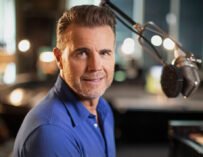
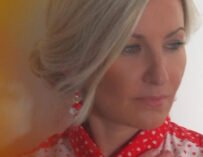
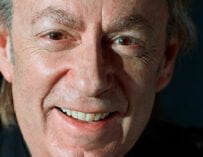
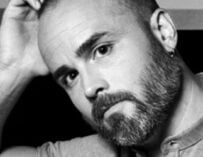


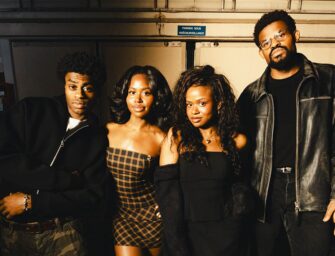


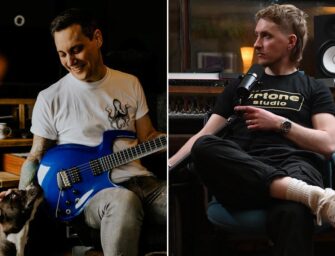






















Related Articles